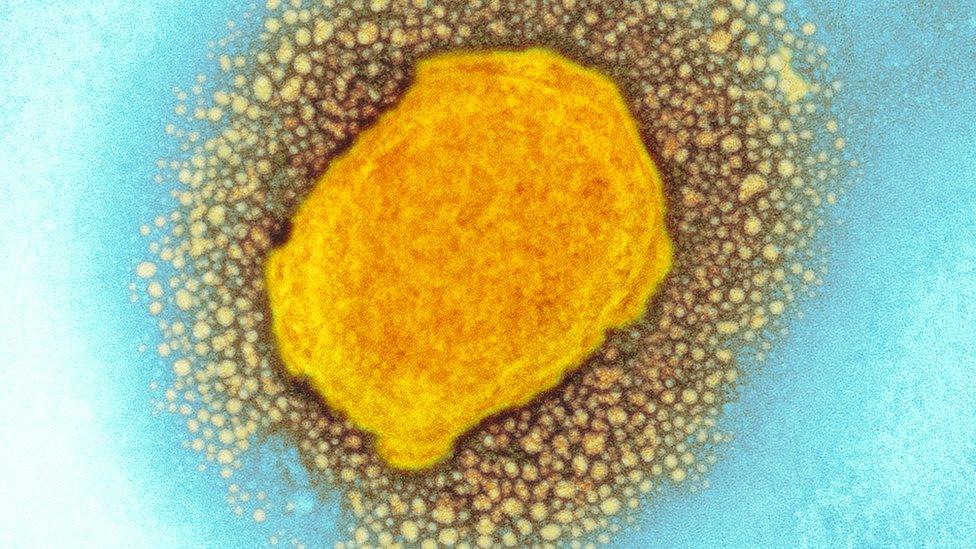Monkeypox: Fourth case in Scotland confirmed
- Published
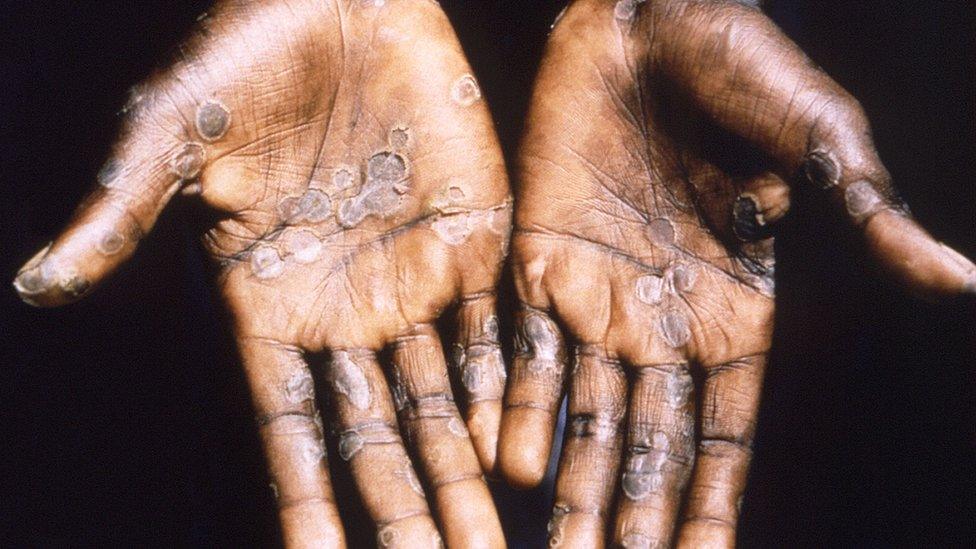
Anyone with a blister-like rash is being asked to seek medical advice
Public health officials have confirmed a fourth case of monkeypox in Scotland.
The first case was detected north of the border a week ago.
Public Health Scotland (PHS) said the individuals affected are receiving treatment under nationally agreed protocols and guidance.
Close contacts of the cases are being identified and provided with health information and, where appropriate, a vaccination. Risk to the public is said to be low.
There have now been 179 cases of the virus in the UK, according to the latest update from the UK Health Security Agency (UKHSA).
On Monday, UKHSA said 71 more cases of monkeypox had been detected in England, bringing the total since 7 May to 172.
There are two patients in Northern Ireland and one in Wales.
Dr Nick Phin, PHS director of public health science, said: "Anyone with an unusual blister-like rash or small number of blister-like sores on any part of their body, including their genital area, should avoid close contact with others and seek medical advice if they have any concerns.
"Public Health Scotland continues to work with NHS boards and wider partners in Scotland and the UK to investigate the source of these infections.
"We have well-established and robust infection control procedures for dealing with such cases of infectious disease and these are being strictly followed and the overall risk to the general public is low."
Monkeypox is a viral infection usually found in west and central Africa.
Health officials said the west African strain recently detected in the UK is generally a mild, self-limiting illness, spread by very close contact with someone already infected and with symptoms of monkeypox.
Most people recover within a few weeks.
PHS said it has been working closely with NHS boards and other partners to raise awareness of the disease and ensure services are ready to respond.
It is also continuing to work with the UKHSA, Public Health Wales and Northern Ireland HSC Health Protection Agency to monitor and respond to potential and confirmed cases in the UK.
There is no specific vaccine for monkeypox, but a smallpox jab offers 85% protection as the two viruses are quite similar.

What are the symptoms of monkeypox?
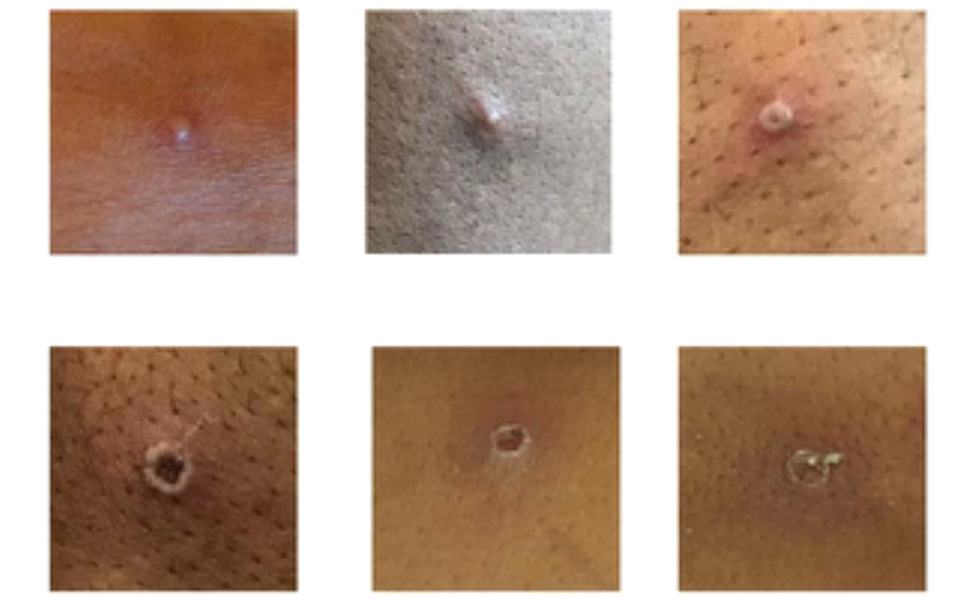
The rash changes and goes through different stages, and can look like chickenpox or syphilis, before finally forming a scab, which later falls off
Initial symptoms include fever, headaches, swellings, back pain and aching muscles.
Once the fever breaks, a rash can develop - often beginning on the face, then spreading to other parts of the body, most commonly the palms of the hands and soles of the feet.
The rash, which can be extremely itchy or painful, changes and goes through different stages before finally forming a scab, which later falls off. The lesions can cause scarring.
The infection usually clears up on its own and lasts between 14 and 21 days.

The disease, first found in monkeys, does not tend to spread easily between people but can be transmitted through close physical contact. That includes:
touching clothing, bedding or towels used by someone with monkeypox rash
touching monkeypox skin blisters or scabs
the coughs or sneezes of a person with the monkeypox rash
The UK Health Agency Security advised people with the highest risk of having caught monkeypox to isolate for 21 days.
- Published26 May 2022
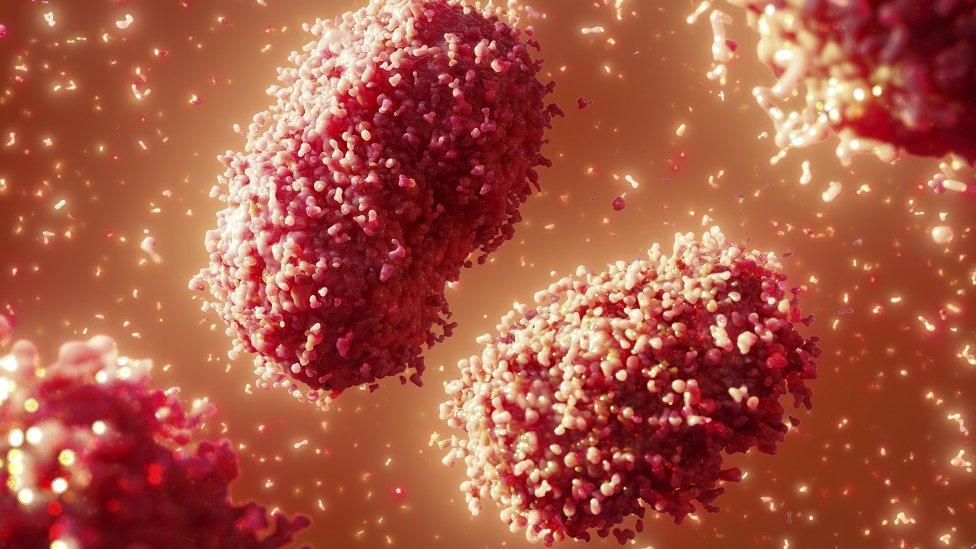
- Published26 May 2022
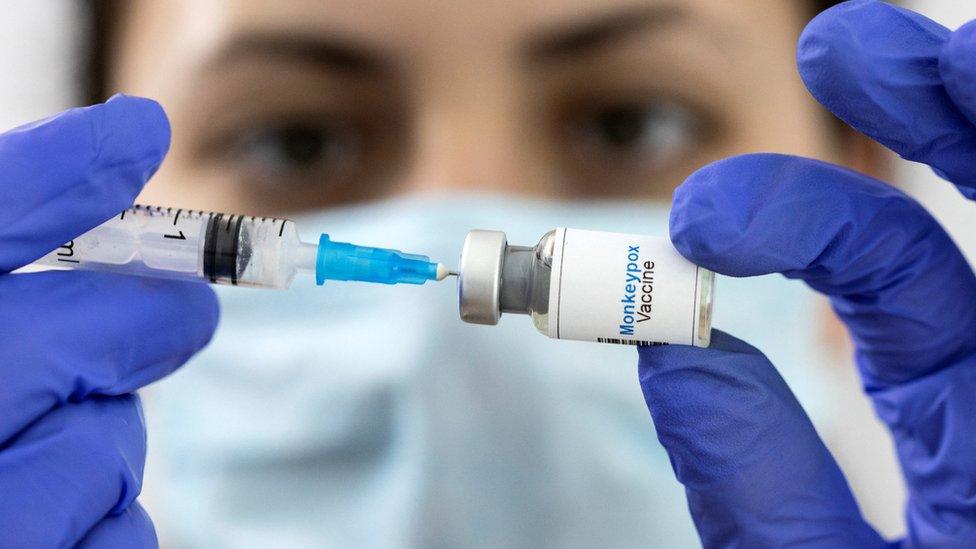
- Published25 May 2022
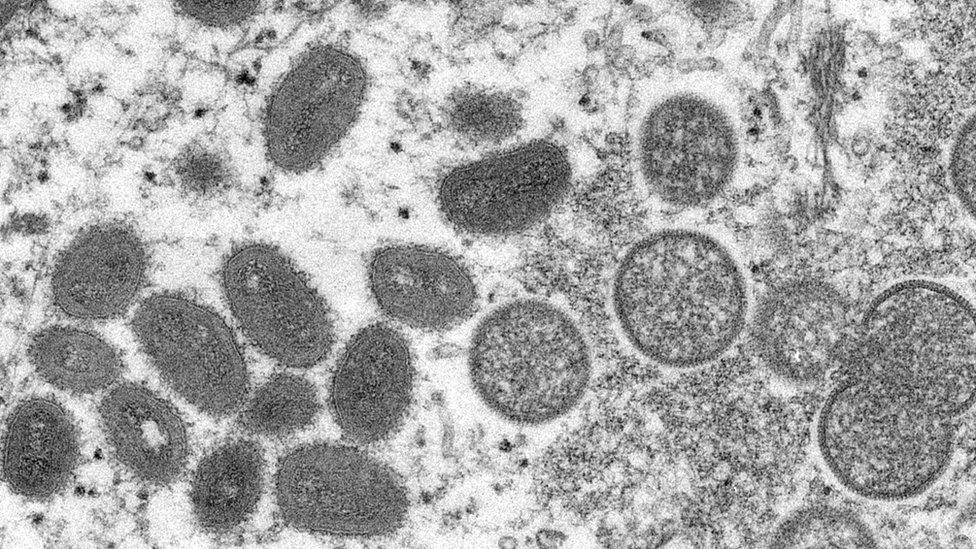
- Published25 May 2022
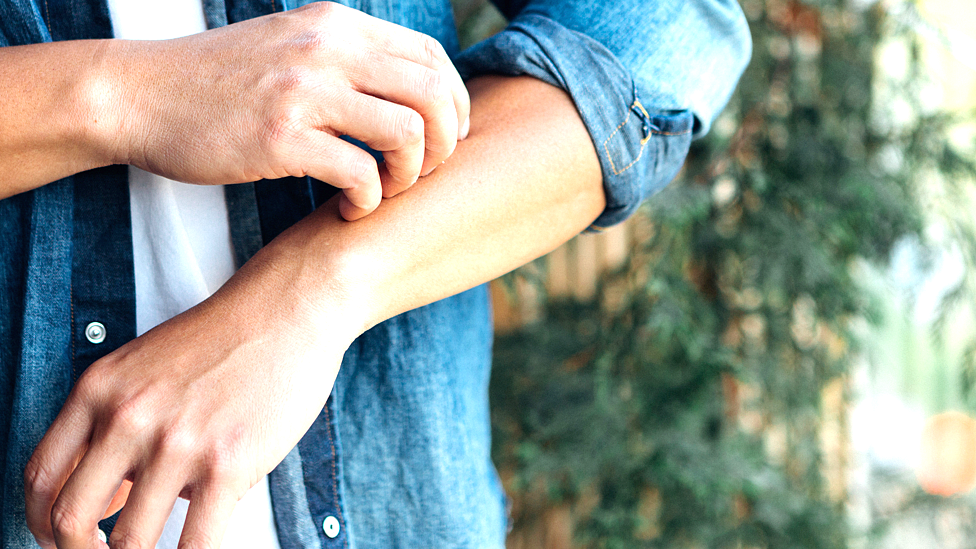
- Published5 August 2022
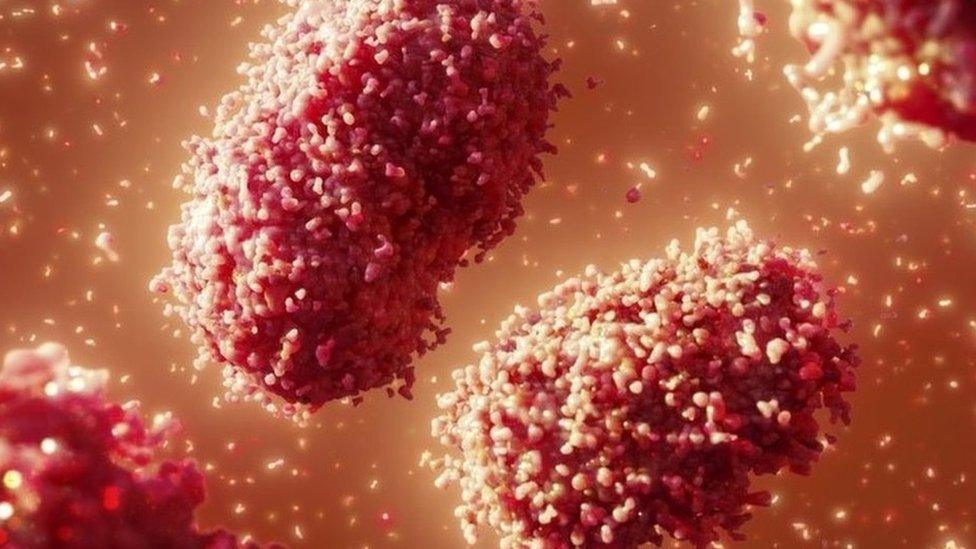
- Published23 May 2022
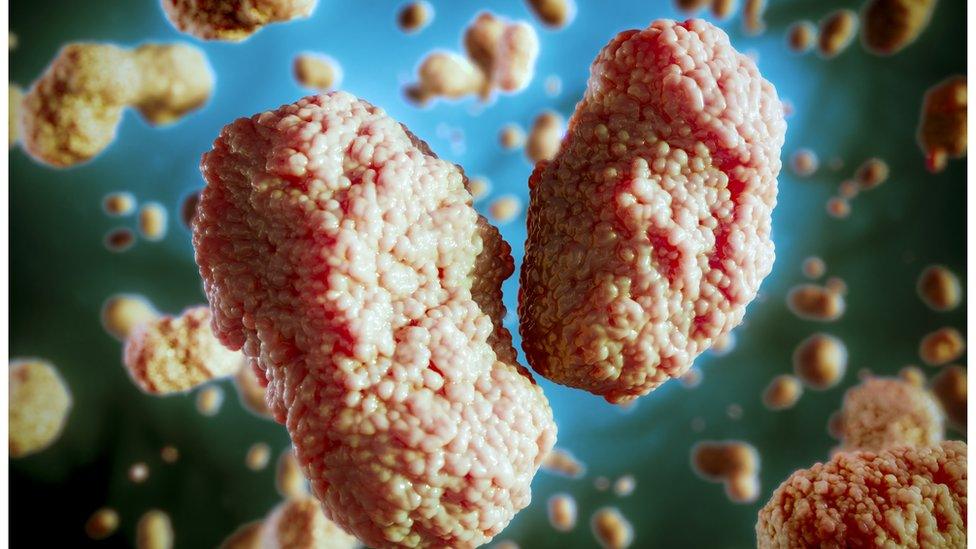
- Published23 May 2022
